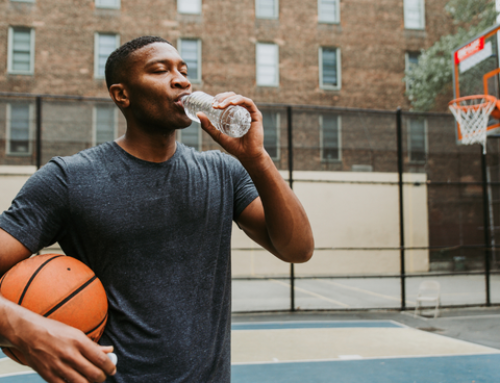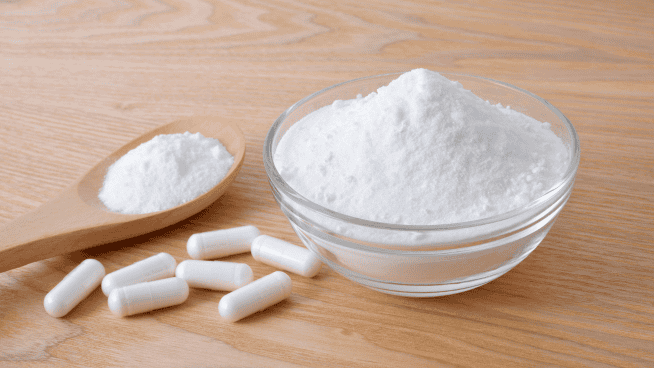The Dangers of Energy Drinks for Student-Athletes

Energy drinks should not be confused with sports drinks, which are intended to re-hydrate the body. Sports drinks such as Gatorade and Powerade also provide sugars, which the body burns to create energy, and replenish electrolytes, helping to maintain salt and potassium balances in the body. (Learn more about why water isn’t enough for athletes and how important electrolytes are).
Energy drinks containing large amounts of caffeine can produce the opposite effect. They can cause dehydration, which can lead to fatigue, and increase body temperature and heart rate, which can compromise performance. If you consume these beverages before strenuous exercise, understand that their effects may lead to cardiovascular difficulties. For more information, read “Raising the Red Flag on Some Energy Drinks.”
NSF International’s Certified for Sport program helps athletes find safe products that will help their game—including safe-to-use energy drinks. NSF International’s Certified for Sport website and new mobile application, available for both the iPhone and Android phones, allows you to search for NSF-certified products at home or on the go.
Photo: italpoint.com
Cheryl Luptowski is the public information officer for NSF International, an independent public health and safety organization that certifies products and writes standards for consumer products, toys, drinking water, dietary supplement safety and sustainability. She handles more than 10,000 consumer inquiries annually on a wide range of consumer health and safety-related issues. She has been interviewed as a home expert in national print, online and radio and has authored many articles and fact sheets with tips for healthier living. The face behind “Ask NSF,” she also chairs NSF’s Consumer Advisory Panel. Luptowski began working for NSF in 1999 after spending several years in both the public and private sectors. She holds a bachelor’s degree in business administration from Cleary University in Ann Arbor and has completed several graduate courses in food science through Michigan State University.
RECOMMENDED FOR YOU
MOST POPULAR
The Dangers of Energy Drinks for Student-Athletes

Energy drinks should not be confused with sports drinks, which are intended to re-hydrate the body. Sports drinks such as Gatorade and Powerade also provide sugars, which the body burns to create energy, and replenish electrolytes, helping to maintain salt and potassium balances in the body. (Learn more about why water isn’t enough for athletes and how important electrolytes are).
Energy drinks containing large amounts of caffeine can produce the opposite effect. They can cause dehydration, which can lead to fatigue, and increase body temperature and heart rate, which can compromise performance. If you consume these beverages before strenuous exercise, understand that their effects may lead to cardiovascular difficulties. For more information, read “Raising the Red Flag on Some Energy Drinks.”
NSF International’s Certified for Sport program helps athletes find safe products that will help their game—including safe-to-use energy drinks. NSF International’s Certified for Sport website and new mobile application, available for both the iPhone and Android phones, allows you to search for NSF-certified products at home or on the go.
Photo: italpoint.com
Cheryl Luptowski is the public information officer for NSF International, an independent public health and safety organization that certifies products and writes standards for consumer products, toys, drinking water, dietary supplement safety and sustainability. She handles more than 10,000 consumer inquiries annually on a wide range of consumer health and safety-related issues. She has been interviewed as a home expert in national print, online and radio and has authored many articles and fact sheets with tips for healthier living. The face behind “Ask NSF,” she also chairs NSF’s Consumer Advisory Panel. Luptowski began working for NSF in 1999 after spending several years in both the public and private sectors. She holds a bachelor’s degree in business administration from Cleary University in Ann Arbor and has completed several graduate courses in food science through Michigan State University.










